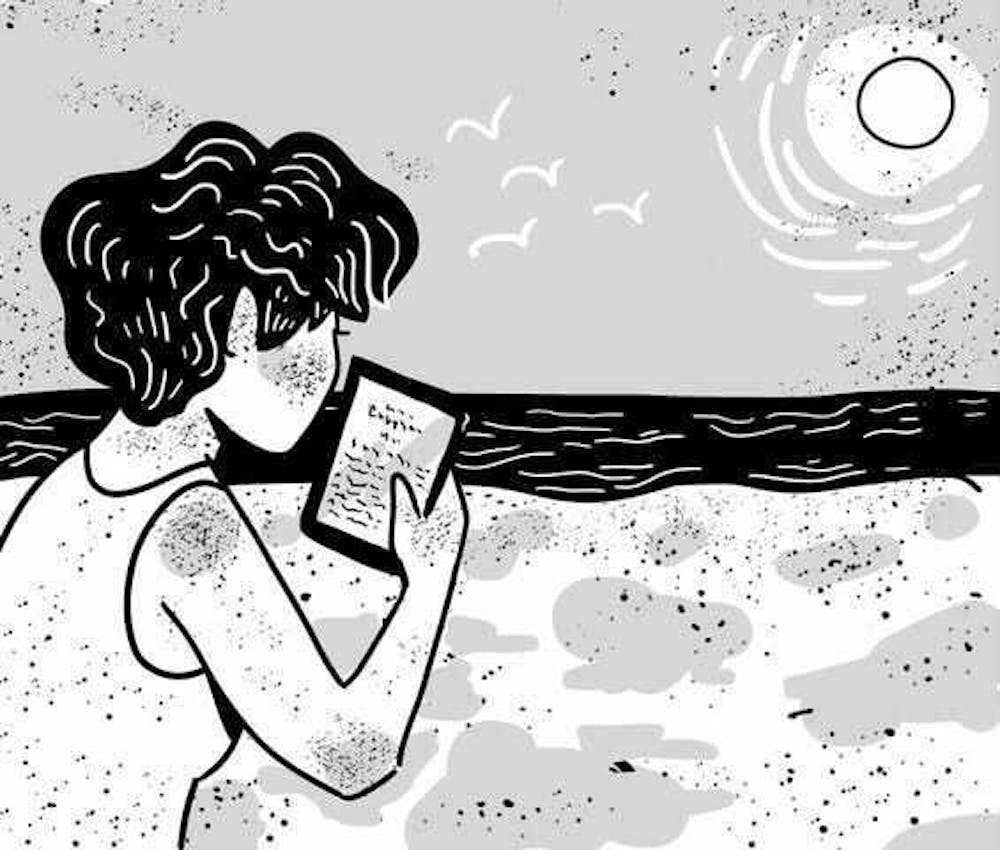With Dean’s Date and final exams still looming, summer can seem so very far away. But in a few short days, this semester — this long, long semester — will at last be over. So many of us, especially A.B. folks like me, have had to do so much reading this semester. Even if that reading is enjoyable or interesting, it’s taxing when it’s mandatory. I’m excited to get back to summertime reading, when I can read what I want at the pace I want. In that spirit, here are six books I want to read this summer — and if you feel so inclined, I invite you to read along with me.
(A note before I begin: it’s easy and cheap to order books on Amazon, but if you want to read the books below, try your local bookstore or library first.)
One Hundred Years of Solitude by Gabriel García Márquez. As one of the greatest literary masterpieces of the twentieth century (or any century, for that matter), I’ve wanted to read Márquez’s landmark work of magical realism for a long time. The book flows through centuries of life — seven generations — in the fictional town of Macondo, where history irreparably repeats itself. It’s a difficult book, yes, but I intend to spend as much time with it as Márquez’s prose requires.
The Silmarillion by J.R.R. Tolkien. I read The Lord of the Rings for the first time last summer and loved it very much; it felt like reading epic poetry but of another world (and I love epic poetry). The Silmarillion zooms out to tell the story of the entire universe that Tolkien created for his Rings saga, from a creation story featuring an old Celtic god to the stories of the battle for Middle Earth. How better to escape the late stages of pandemic than to thrust oneself into a magical realm of orcs and hobbits?
Writing to Persuade by Trish Hall. A few weeks ago, Trish Hall, who has worked in many different positions over twenty years at The New York Times, gave a talk to Daily Princetonian staffers on the tenets of journalistic writing. Emma Treadway, our noble editor-in-chief, recommended Hall’s book “Writing to Persuade,” which concerns how to write opinionated work that is at once convincing and stylistic. It also comments on the nature of persuasive writing in general: one Times reviewer wrote that the book “convincingly demonstrates that beliefs always outweigh facts.” Even though I don’t write for the opinion section at the ‘Prince,’ I’m still excited to learn how to best make my writing shout from the rooftops.
Quilting: Poems 1987-1990 by Lucille Clifton. A dear friend of mine has sent me a few Lucille Clifton poems over the last semester, most notably this beautiful one called “Ways You Are Not Like Oedipus”:
you have spared your father
you pass the sphinx without

answering you recognized
your mother in time
your sons covet only
their own kingdoms

you lead your daughters
even in your blindness
you do not wander far
from your good house
it is home and you know it
I don’t think I need to say much more in the way of a recommendation after that poem: read Lucille Clifton, particularly Quilting, the collection in which this poem is included. (And never doubt the recommendations of your friends.)
Coming into the Country by John McPhee. Listeners of my podcast Book-ish will know that I am a devoted fan of John McPhee, the Princeton professor and long-time New Yorker staff writer — I think he’s one of the best prosesmiths to ever write in English, and I’ll stand by that opinion. (Miltonites, I’m going to try to read Paradise Lost this summer, too, so get off my back.) Coming into the Country, a story of McPhee’s travels through and interpretations of the state of Alaska, is his best-selling book. After it was published, a critic called him “the most versatile journalist in America,” a title he will retain in my book until he lays down his pen at last.
Walden; or, Life in the Woods by Henry David Thoreau. This book catalogues Henry David Thoreau’s self-imposed seclusion in the woods near Walden Pond outside of Concord, Massachusetts, for two years, two months, and two days. I don’t need to tell you the relevance of this book to our last year of pandemic life. It’s a beautiful meditation on self-reliance, self-disciple, and the self; it’s at once satire, social experiment, and a song of simplicity.
These probably aren’t all the books that I’m going to read this summer — I read quite a bit and summer is long. This will be a start for me and, maybe, a start for you. But before you read anything, let this be a missive from me to you: this year has been awful, lousy, no-good, and terrible. Take a moment to yourself, then, if you can, crack a book. I will too.








